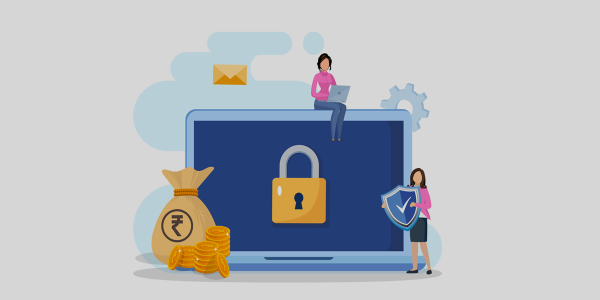The evolution of India's insider trading regulations, through judicial precedents and legislative amendments, has created one of the most stringent preventive programs globally. A result of this marriage is the SEBI (Prohibition of Insider Trading) Regulations, 2015 (PIT). PIT is pivotal in ensuring mala-fide actors are held accountable for insider trading. The regulation explicitly targets the trading activity conducted while possessing Unpublished Price Sensitive Information (UPSI) and prohibits the unauthorised communication of UPSI (unless it serves a legitimate purpose) to any other individuals for indirectly committing the act.
However, as with any law applied to the real world, this has also given rise to a unique situation requiring extensive judicial deliberation. It is fairly simple from the regulation that when an insider (tippee) communicates a company's confidential information to an outsider, who then executes a trade based on such information, they will squarely fall under Regulation 4(1) of the PIT. The tippee shall be liable for insider trading. But what happens if the tippee did not have the knowledge that such information provided was actually UPSI (innocent tippee)? Should they still be subject to the above Regulations?
The Doctrines of Insider Trading
The ‘Report on the Regulation of the Stock Market in India (1948)', authored by P. J. Thomas, commonly referred to as the Thomas Report, elucidates the doctrinal principles underpinning the Insider Trading regime in India. It's called the "Special Relationship" doctrine, which states that insiders have a special relationship with the company by virtue of their position to access UPSI. Therefore this imposes a corresponding duty on them not to trade in securities based on such information.
Next is the “Equal Access” doctrine, which finds its roots in the parity of information theory, as discussed by the U.S. Court of Appeals for the Second Circuit. This doctrine states that the ordinary investor (public) anticipates fair and equal access to critical information in the securities market. Without such information, trading related to equity should be forbidden.
Prior to the 2008 amendment, the SEBI PIT regulations operated on the special relationship doctrine, which restricted insider trading to a specific group of individuals (insiders, e.g. directors, officers, etc.) who had a close association with the company, granting them access to UPSI. Consequently, if a person lacked such a connection with the company, they would not be held liable for trading in its securities based on UPSI.
Following the 2008 amendment, the scope of liability for insider trading expanded beyond individuals with a special relationship to the company. Under the revised regulations, an insider is defined as either a connected person or anyone who possesses or has access to UPSI. Therefore, effectively any person can be held accountable for insider trading irrespective of their relationship with the company, as long as they were in possession of UPSI at the time of executing the trade.
Concept of Innocent Tippee
This brings us back to the original question posed at the beginning. Given the present stance of the regulations and as understood from a plain reading of Regulation 2(g), what shall be the fate of a tippee who traded on UPSI without knowing it to be UPSI?
The 'innocent tippee' concept as a defence in India's security laws was introduced in 2013 through a High Level Committee report chaired by N.K. Sodhi, Former Chief Justice of the High Courts of Kerala and Karnataka. This report reviewed the SEBI (Prohibition of Insider Trading) Regulations, 1992 (Sodhi Report). It shed light on the notion of a defence for individuals who received insider information unknowingly and without any involvement in insider trading activities. The Sodhi Report inter alia suggested the inclusion of a defence as Regulation 4(3)(ii) wherein "the insider being an innocent recipient of UPSI or placed reliance on information not believed to be UPSI", however given the underlying complexities of proving insider trading, this defence was not included in the PIT regulations.
All is Not Lost
Interestingly enough, there have been two instances where one can see the shadow of the defence of innocent tippee in the judicial pronouncements.
- Manappuram Finance Limited: In this matter, a research report containing the financial results of a company compiled based on publicly available information was distributed to more than 2000 individuals. Subsequently, the tippee, who had access to the report, sold their shares. Following this, SEBI issued a show cause notice to the tippees for using UPSI to trade securities. The tippee argued that since the research report was shared with many individuals, the information in the report should not be considered UPSI.
Upon careful examination of the circumstances, SEBI concluded that the tippee should not be held accountable for Insider Trading. The tippee's actions were in good faith since the research report had already been distributed to a significant number of individuals. Therefore, the information contained therein could not be classified as UPSI. Furthermore, considering that the report was based on publicly available information, it was reasonable for the tippee to rely on it.
- Shruti Vora v. SEBI: In this matter, SEBI brought insider trading charges on several individuals in a Whatsapp group after a series of messages containing confidential quarterly financial results of more than 12 Indian companies were shared in the group before their public release. In their defence, the tippees accused of Insider Trading claimed that they had simply posted or forwarded the messages they received from unidentified individuals and had no knowledge or involvement in the actual sources or originators of the UPSI being disseminated. They further argued that even if the information was UPSI, they had no knowledge about it being so.
While SEBI dismissed all the arguments put forth by the tippees, the decision was subsequently overturned by the Securities Appellate Tribunal (SAT), citing that the information shared on Whatsapp groups could have originated from various sources, such as brokerage firms and financial media outlets, which are accessible to the general public. The tribunal further stated that since the tippees were unaware of the origin or source of the information and its nature, they could not be held accountable. Therefore, Shruti Vohra established the importance of knowledge as a determining factor in assessing a tippee's liability.
It is worth mentioning that the defence extended by SEBI bears a resemblance to the approach taken in the insider trading jurisprudence regarding tippee liability in the United States. In the matter of United States vs. Newman, the ruling court established the criteria for assigning liability to a 'tippee.' It states that a tippee will not be considered innocent if they are aware of the tipper's breach of fiduciary duty in disclosing the information for personal gain.
Off the Hook
The PIT regulations in operation currently do not consider a scenario where UPSI can be acquired without knowing the actual nature of the information. This is clear from a reading of the explanation accompanying Regulation 4(1), which specifies the following:
- a) engaging in securities trading while having access to UPSI implies that the accused possesses knowledge and awareness regarding the content of such information, and
-
b) the intention behind the securities trading conducted in such circumstances is inconsequential when establishing the accused's liability. Thus it places the burden of proving innocence against the insider trading allegation on the accused themselves.
DISCLAIMER – No information contained in this website may be reproduced, transmitted, or copied (other than for the purposes of fair dealing, as defined in the Copyright Act, 1957) without the express written permission of Rainmaker Online Training Solutions Pvt. Ltd.











